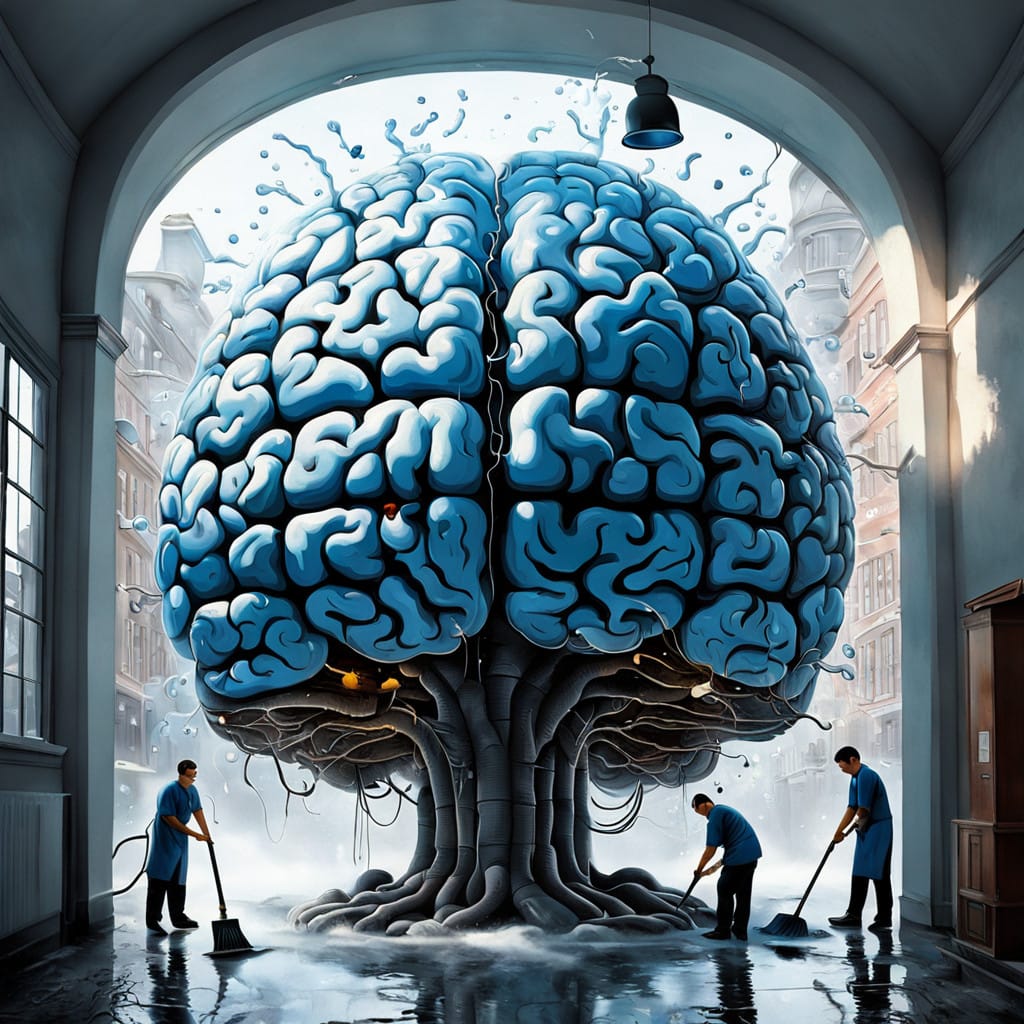Back in 2022, I realized that despite practicing happiness assiduously with mindfulness, gratitude exercises, journaling, appreciating beauty — basically every tool I knew about in the modern happiness toolkit — I was still not happy. Coincidentally (not really), I was living next door to a flock of chickens, including multiple roosters. Those dudes were NOISY! The idea that roosters crow at sunrise doesn’t really apply in a world with plenty of artificial lights. My little rooster friends were starting at about 2AM, and given that my tiny house shared a wall with their chicken coop, I wasn’t getting much sleep.
At the time, I didn’t realize how important sleep was for happiness. But you can learn from my mistakes.
Let’s take a look at the scientific reasons why choosing to prioritize getting seven to eight hours of sleep every single night is also choosing happiness.
Your Brain’s Nightly Cleaning Crew
Imagine your brain as a bustling city. Throughout the day, it’s hard at work processing thoughts, emotions, and information, leaving behind a bit of trash in the form of stress hormones and other byproducts. That’s where the glymphatic system comes in. The glymphatic system acts like a cleaning crew, flushing out the waste while you sleep.
During the stage of sleep known as deep sleep, the glymphatic system goes into overdrive, clearing out cortisol (the stress hormone) and other toxins that build up throughout the day. If you skimp on sleep, this clean-up process doesn’t finish, leaving your brain cluttered with the detritus of yesterday’s frustrations. Over time, this affects your mood, making you more prone to irritability, anxiety, and even depression. But when you give your brain enough rest, it’s like giving your brain a shower. You wake up refreshed and ready to face the day with a clean mind.
The Emotional Power of REM Sleep
During REM sleep, the dreamy stage of the sleep cycle, some serious emotional magic happens. During this phase, your brain processes the emotions you’ve experienced throughout the day, helping you make sense of them and file them away.
Think of it like organizing a closet: REM sleep helps you sort through your emotional stuff, deciding what to keep and what to let go. That’s why a good night’s sleep can help you wake up feeling less upset about that stressful conversation. Your brain has had time to process and reset, so you can approach the new day with a lighter emotional load.
Without enough REM sleep, emotions feel bigger and harder to manage. Studies have shown that sleep-deprived brains are more reactive to negative experiences, making it harder to stay positive. If happiness feels elusive, the answer might be as simple as consistently getting a good night’s rest.
Choosing Sleep, Choosing Happiness
The beauty of sleep is that we can choose to prioritize it. Sure, life gets busy, and there are always reasons why staying awake appeals. For a lot of us, those quiet solitary hours late at night feel like our time, the only period of the day when we’re not responsible to other people. But when we treat sleep as a non-negotiable part of our happiness toolkit, the benefits ripple out into every aspect of our lives.
Start small: create a calming bedtime routine, dim the lights, and make sure your bed—from mattress to pillows to sheets—is truly a comfort zone. Over time, these small changes can add up to big improvements in how rested—and happy—you feel.
Tonight, when you climb into bed, remember: you’re not just going to sleep. You’re giving your brain a chance to clean, reset, and prepare for a brighter tomorrow. Choosing happiness can be as simple as choosing to get a good night’s sleep. Sweet dreams!

